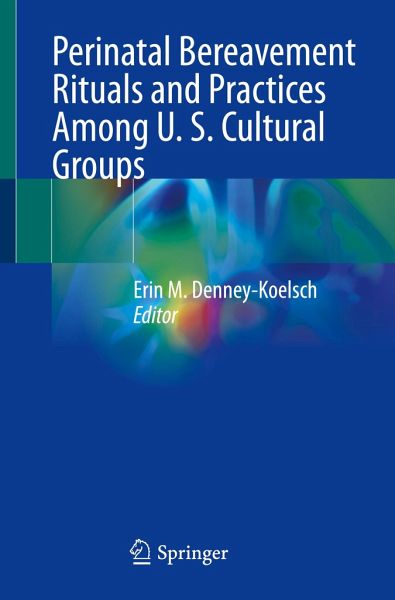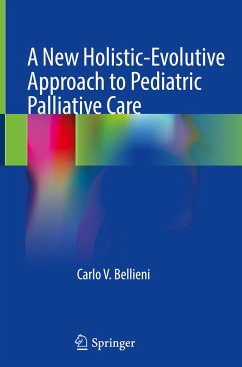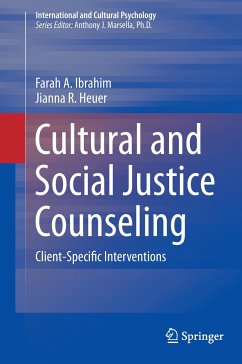
Perinatal Bereavement Rituals and Practices Among U. S. Cultural Groups

PAYBACK Punkte
41 °P sammeln!
Death rituals are a universal feature of every human culture across the world. Every human must eventually face the stark reality of death, and many cultures and religions have sought to make sense of death and bring solace to the people through bereavement rituals. Infant death has been commonplace in most of human history. Despite the high prevalence of pregnancy loss (25% of all pregnancies) and infant death (0.6% of liveborn infants), these deaths are rarely discussed openly. The parents' grief often is underestimated or ignored by their social network who may never have met the baby and/o...
Death rituals are a universal feature of every human culture across the world. Every human must eventually face the stark reality of death, and many cultures and religions have sought to make sense of death and bring solace to the people through bereavement rituals. Infant death has been commonplace in most of human history. Despite the high prevalence of pregnancy loss (25% of all pregnancies) and infant death (0.6% of liveborn infants), these deaths are rarely discussed openly. The parents' grief often is underestimated or ignored by their social network who may never have met the baby and/or feel uncomfortable discussing the loss of a child. On the other hand, the families enduring perinatal loss experience profound grief, loss of the actual and imagined future for that child, and the baby is never forgotten. Thus, parents seek to have their baby remembered through the creation of keepsakes, memories, and rituals. Having a supportive environment that honors their loss and their child's memory and helps to facilitate meaningful rituals can have a profound effect on their long-term bereavement.
There is a large amount of literature on death rituals across cultures but most books include infants only briefly and miscarried or stillborn babies are not mentioned at all. This text seeks to fill this substantial gap through review of existing literature paired with dozens of interviews with clinicians and caregivers across many disciplines in the hospital and community as well as bereaved family members who have gone through perinatal loss.
The authors recruited in Bereavement Rituals after Pregnancy Loss or Infant Death across U.S. Cultures are a broad group of experts that include clinicians in palliative care and perinatal bereavement, nurses and clergy from different religious groups. The book is broken up into three main sections. The first provides a history and theoretical basis for perinatal death rituals. The second includes an overview of common beliefs and practices in major US religious and cultural groups. The third focuses on the roles of the health care team members and offers a practical how-to guide for health care providers to support families through rituals that fit their personal values and needs.
There is a large amount of literature on death rituals across cultures but most books include infants only briefly and miscarried or stillborn babies are not mentioned at all. This text seeks to fill this substantial gap through review of existing literature paired with dozens of interviews with clinicians and caregivers across many disciplines in the hospital and community as well as bereaved family members who have gone through perinatal loss.
The authors recruited in Bereavement Rituals after Pregnancy Loss or Infant Death across U.S. Cultures are a broad group of experts that include clinicians in palliative care and perinatal bereavement, nurses and clergy from different religious groups. The book is broken up into three main sections. The first provides a history and theoretical basis for perinatal death rituals. The second includes an overview of common beliefs and practices in major US religious and cultural groups. The third focuses on the roles of the health care team members and offers a practical how-to guide for health care providers to support families through rituals that fit their personal values and needs.












